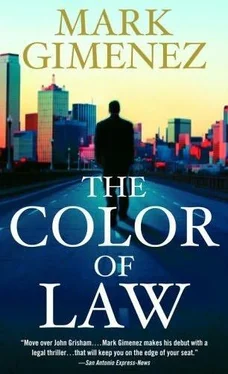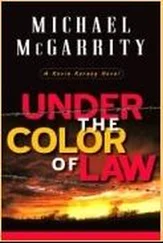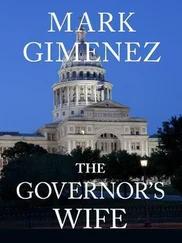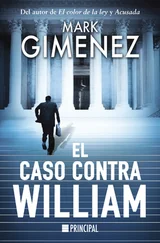Mark Gimenez - The Color of Law
Здесь есть возможность читать онлайн «Mark Gimenez - The Color of Law» весь текст электронной книги совершенно бесплатно (целиком полную версию без сокращений). В некоторых случаях можно слушать аудио, скачать через торрент в формате fb2 и присутствует краткое содержание. Жанр: Криминальный детектив, на английском языке. Описание произведения, (предисловие) а так же отзывы посетителей доступны на портале библиотеки ЛибКат.
- Название:The Color of Law
- Автор:
- Жанр:
- Год:неизвестен
- ISBN:нет данных
- Рейтинг книги:3 / 5. Голосов: 1
-
Избранное:Добавить в избранное
- Отзывы:
-
Ваша оценка:
- 60
- 1
- 2
- 3
- 4
- 5
The Color of Law: краткое содержание, описание и аннотация
Предлагаем к чтению аннотацию, описание, краткое содержание или предисловие (зависит от того, что написал сам автор книги «The Color of Law»). Если вы не нашли необходимую информацию о книге — напишите в комментариях, мы постараемся отыскать её.
The Color of Law — читать онлайн бесплатно полную книгу (весь текст) целиком
Ниже представлен текст книги, разбитый по страницам. Система сохранения места последней прочитанной страницы, позволяет с удобством читать онлайн бесплатно книгу «The Color of Law», без необходимости каждый раз заново искать на чём Вы остановились. Поставьте закладку, и сможете в любой момент перейти на страницу, на которой закончили чтение.
Интервал:
Закладка:
“No, I did not. I don’t even know who Mr. Herrin is. Would you point him out?”
Bobby was not at the defendant’s table. He had gotten a message on his cell phone and had run out of the courtroom at the first opportunity.
Ray Burns stood. “Your Honor, is Mr. Fenney going to spend the morning insulting the senior senator from Texas or is he going to ask questions relevant to this murder case?”
“Do you have an objection, Mr. Burns?”
“Objection, irrelevant.”
“Overruled.” The judge turned to Scott. “Mr. Fenney, please tie the senator’s testimony to this case.”
Scott was thinking, I wish I knew how, when the courtroom doors opened and Bobby entered. He gave Scott a time-out gesture. Scott asked the judge for a fifteen-minute recess.
Scott walked out of the courtroom with Bobby and down the corridor to where Carl Kincaid was leaning against the wall and holding a large yellow envelope. Carl was long and lanky and wore a plaid sports coat over a golf shirt. When they arrived, Carl handed the envelope to Scott. Scott removed and examined the contents. Then he looked back at Carl.
“You know what this means?” Scott asked.
“I think I do,” Carl said. “He’s dirty.”
“How did you get all this?”
Carl smiled. “I won’t tell you how to bribe judges if you don’t tell me how to do my job.”
When the court reconvened, Scott knew how Senator McCall was tied to the murder of his son: by his bodyguard.
“Your Honor, the defense calls Delroy Lund.”
“You have no further questions for Senator McCall?”
“No, sir.”
“Very well.”
The judge nodded at the bailiff, who went outside. When the courtroom doors opened, Delroy Lund strode in like the ex-Fed he was. He was a big man and carried an attitude with him; clearly he was a cop who had banged a few heads together in his day. He walked up to the witness stand and took the oath. Then he sat down, leaned back, and crossed his legs, right ankle over left knee, like he owned the damn place. Scott saw his effect on the jurors: before he had said one word, they hated him. Which made at least thirteen people in this courtroom who hated Delroy Lund.
“We meet again, Mr. Lund.”
Scott first elicited from Delroy his background: He was fifty-one years old, born and raised in Victoria, Texas, college at Texas A amp;I, street cop in Houston for three years, then twenty years with the DEA, working in South Texas, fighting the war on drugs. Divorced, no children. Six years ago, he had retired to Senator McCall’s payroll.
“Mr. Lund, did you ever frame a suspect?”
“Nope.”
“Ever plant dope in a suspect’s home or car?”
“Nope.”
“Ever beat up a suspect?”
“Nope.”
But his eyes said yep. And the Hispanic and black jurors saw the truth in his eyes.
“You ever kill anyone?”
“Yeah.”
“How many?”
“Nine I’m sure of.”
“Might be more?”
“When you’re in a firefight with the Mexican drug cartels, you don’t stop to count.”
“Did you ever kill anyone up close and personal, face-to-face?”
“Yeah.”
“When and where?”
“Laredo, 1994.”
“What were the circumstances?”
“I was a DEA agent. He was a drug trafficker. He didn’t want to go to jail. He pulled a gun on me, I shot him first.”
The jury knew Delroy Lund was capable of killing.
“How did you feel afterward?”
“Happy. He was dead; I was alive.”
“Mr. Lund, that wasn’t the only time you killed someone up close, was it?”
Delroy’s eyes narrowed. “You talking about Del Rio?”
“Yes.”
“I was completely exonerated.”
“Being no-billed by the grand jury isn’t the same as being exonerated, Mr. Lund. It only means there wasn’t sufficient evidence to prosecute.”
Ray Burns stood. “Objection. Irrelevant. Your Honor, Mr. Lund is not on trial here today.”
Scott said, “Maybe he should be.”
“Overruled,” the judge said.
Scott turned back to the witness. “Mr. Lund, what happened the night of March thirteenth, 1998, in Del Rio, Texas?”
“I shot a suspect during a confrontation with drug dealers.”
“You shot a sixteen-year-old boy.”
“He looked older.”
Scott picked up Carl’s envelope, removed the documents, and placed them on the podium. When his background check of Delroy Lund had revealed reprimands for unnecessary use of force, Carl had decided to dig deeper. He found more dirt.
“Mr. Lund, the internal DEA incident report-”
“That’s supposed to be confidential. How’d you get that?”
“Sorry, attorney-client privilege, Mr. Lund. As I was saying, the internal DEA report states that on the night in question, you approached a group of Mexican nationals, approximately a dozen boys and girls, outside a bar in downtown Del Rio after observing them selling drugs. At least that was your story. Witnesses said you were drunk and propositioned one of the Mexican girls.”
“They lied.”
“In any event, an altercation ensued and when it was over, you had shot and killed an unarmed sixteen-year-old boy.”
“He was going for a gun.”
“The report says no gun was found at the scene.”
“His amigos took it when they ran off.”
“Did the boy mouth off to you, Mr. Lund, is that how the confrontation started?”
“The suspect refused to obey my orders. He got in my face. Things got out of hand.”
“Things got out of hand?”
“Yeah. It happens.”
“It seems to happen a lot with you, Mr. Lund. Your record shows nine deadly shootings, numerous other questionable discharges of your firearm, a dozen reprimands for unnecessary use of force, internal affairs investigations for freelancing, running interdiction operations without agency approval-you put together quite a career at the DEA, Mr. Lund.”
Delroy shook his head with disdain. “Civilians. Mr. Fenney, the war on drugs ain’t gin rummy at the country club. Mexican drug cartels are violent and ruthless narco-terrorists. They’ve killed over a hundred women in Juarez, many of them young American girls. They’ve kidnapped and killed dozens of American tourists in Nuevo Laredo and dumped their bodies in the Rio Grande. They’ve murdered border patrol agents and Catholic priests who spoke out against them. They own the police throughout Mexico and those they don’t own they kill. You want people like them running around Dallas? People like me, Mr. Fenney, we keep people like them on their side of the river.”
“That may be true, Mr. Lund, but the fact is your superiors at the DEA grew tired of your practices, didn’t they?”
“Bunch of desk jockeys who couldn’t cut it on the border.”
“Shortly after that incident in Del Rio, you were forced to retire from the DEA?”
“Yeah. By bureaucrats more concerned about getting promotions than results. I got results.”
“You got results with Hannah Steele, too, didn’t you?”
“I don’t know what you’re talking about.”
“Mr. Lund, did you bribe Hannah Steele to absent herself from this trial?”
“Nope.”
“Did you threaten to make her fish bait?”
“I don’t fish.”
“Answer the question.”
“No, I did not threaten anyone.”
“Do you know Hannah Steele?”
“Nope.”
“Did you attempt to bribe my cocounsel, Robert Herrin, to drop out of this case?”
“Nope.”
“You didn’t offer him a hundred thousand dollars?”
“Nope.”
“Did you know Clark McCall?”
“Yeah.”
“What did you think of him?”
“Honestly?”
“Why not, we’re in a court of law.”
Читать дальшеИнтервал:
Закладка:
Похожие книги на «The Color of Law»
Представляем Вашему вниманию похожие книги на «The Color of Law» списком для выбора. Мы отобрали схожую по названию и смыслу литературу в надежде предоставить читателям больше вариантов отыскать новые, интересные, ещё непрочитанные произведения.
Обсуждение, отзывы о книге «The Color of Law» и просто собственные мнения читателей. Оставьте ваши комментарии, напишите, что Вы думаете о произведении, его смысле или главных героях. Укажите что конкретно понравилось, а что нет, и почему Вы так считаете.












